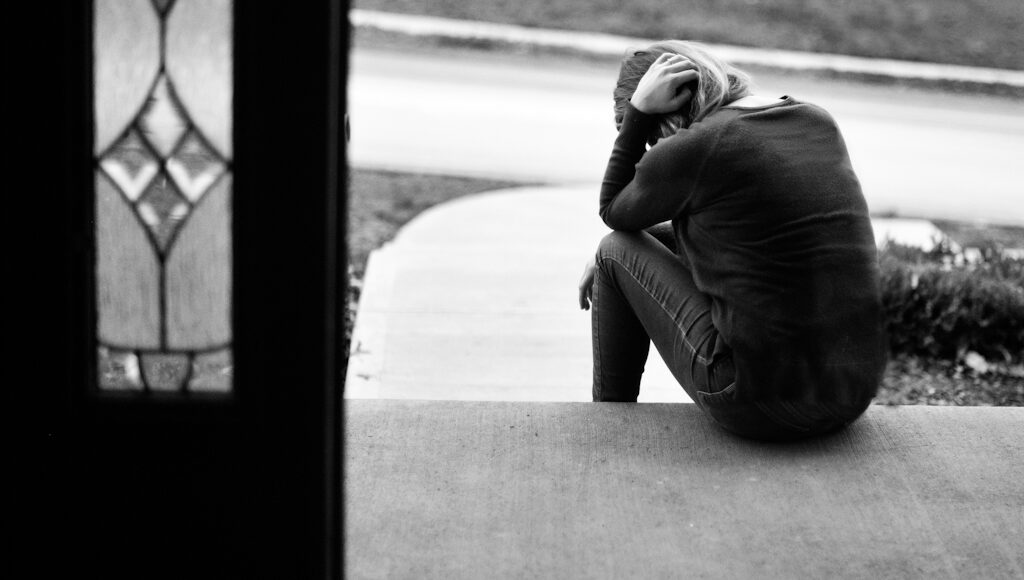
This post is in proud, continued partnership with Allegheny Health Network. Friends we have worked so hard to fight the stigma surrounding maternal mental health, it’s time to fight another stigma in the maternal health world. Please note that for purposes of privacy, the name* of the patient referenced in this article has been changed. Click here for partnership disclosures.
“I have the best job in the entire world.”
I’m not sure what I expected Jean Fitzgibbons, CRNP with Allegheny Health Network’s Perinatal Hope Program, to say when I asked her on a recent Facebook Live conversation about what was rewarding about her job.
But what she did say – and the emotion that filled my body when she did – told me I wasn’t prepared for her heartfelt answer.
“Every one of these women is absolutely remarkable and they are amazing moms, and I feel really lucky to play a small role in their lives,” she said. “Just seeing how strong, resilient and remarkable these women are… every day I am awestruck by these women who are able to overcome such barriers and such seemingly insurmountable obstacles.”
Strong.
Resilient.
Remarkable.
I have to believe those aren’t words many in a stigmatized society would use to describe pregnant and new moms struggling with substance use, and certainly not words I imagine those struggling with it would use to describe themselves, either.
But those are the words Fitzgibbons used to describe the individuals with whom she works in Allegheny Health Network’s Perinatal Hope program — which is dedicated to giving pregnant or new mothers struggling with substance use disorder a safe place to get the care and support they need for them and their babies to live their healthiest lives.
When Fitzgibbons used such positivity when speaking about these women, I couldn’t help but imagine how one of those moms struggling with Opioid Use Disorder would feel hearing those words to describe her after she has been so negatively stigmatized by society.
I couldn’t help but think of a six-months-pregnant mom who wants to get help with her substance use but doesn’t know where to turn — hearing that there is someone like Fitzgibbons (and the rest of the team at Perinatal Hope) who believes in her and can give her the tools she needs to succeed.
I couldn’t help but think of a new mom who has been shamed by her family in addition to talking to herself negatively for years … hearing the word “remarkable” being used to describe her.
I couldn’t help but think of what that could do for a woman’s — and a baby’s — life.
And then Lauren*, a Perinatal Hope program patient, showed me.
“(When I was using drugs while pregnant), I hated myself for what I was doing to the baby. I was depressed. I got to the point that I didn’t care,” she said in a recent conversation via Zoom while she fed her now-one-year-old son in her home.
“Perinatal Hope has no judgement. They listen,” she continued. “I was lucky enough to get into (the program), and I think if I didn’t, I wouldn’t be where I am. I’d still be hating myself. I’d still be urging to do drugs.”
Fighting the Statistics
According to Fitzgibbons, in 2018, around 75 of every 1000 births in Allegheny County resulted in a baby experiencing neonatal abstinence syndrome — a condition caused when a baby has withdrawal symptoms from certain drugs to which the baby was exposed in the womb.
They are numbers Fitzgibbons says makes our community a “hard hit” one.
In a continued effort to put moms first, Allegheny Health Network’s Perinatal Hope program in Pittsburgh was established to help combat that. It provides pregnant or new moms struggling with substance use disorder with a safe space to get the care and support they need to live their healthiest lives.
“Substance Use Disorder and Opioid Use Disorder… they are diseases,” Krista Flaherty, LCSW and Manager of the Perinatal Hope Program at AHN said.
Flaherty explained that when someone is struggling with a substance in their life, usually it becomes an addiction when maladaptive behaviors start; whether it’s not being able to focus on a job, or not being able to take care of themselves or their lives like they normally would because they are so focused on the substance.
The program combines physicians, nurse practitioners, social workers, mental health specialists and a partnership with POWER (Pennsylvania Organization for Women in Early Recovery) to help treat all aspects of the disease.
Embedded in six different practices (five of which are OB practices) across the greater Pittsburgh area, the goal is to consolidate care as much as possible and break down barriers like time and transportation for the individuals to get help they need to take care of all aspects of their health in a single visit.
In addition to focusing on providing care for the women who need it, The Perinatal Hope program is also doing work to combat the stigma associated with it.
“Addiction and substance use disorders are a severe medical conditions that (are) not as easy as we want it to be for our family members and loved ones who are struggling with this disease,” Fitzgibbons said.
Fighting The Stigma
Fitzgibbons calls the stigma and the shame associated with substance use disorder, especially for a person who is pregnant, the biggest “enemy” in connecting care for those who need it.
“It sometimes takes folks a long time to finally feel comfortable admitting to somebody that this is an issue that they have been struggling with,” she said.
Perinatal Hope patient Lauren expressed that fear of shame; anticipating that she would be looked down upon when she entered the program. But she said that “very comforting” nurses quickly eased her fears.
Lauren acknowledged the Perinatal Hope’s team focus on the future was a big part in helping her succeed. Instead of focusing on the story that led to her coming in for conversion from the drugs to medication-assisted treatment — one that involved legal issues and an extensive history of drug use — she said people like Flaherty helped her focus on what she could do now to change.
“They became my friends and were there for me,” she said. “That was one thing that I never had was someone (to) actually be there to talk. They made me feel like I was doing great, too. They helped me feel accomplished about things without feeling any judgment.”
Flaherty highlighted another societal stigma about the patients for which they care.
“There is not a single one of our moms that doesn’t love their kids, sometimes this disease gets in the way,” she said. “Even when they are having some use, they still love their kids, it’s just the disease. And that’s where it’s really challenging to get other people to recognize this.”
Lauren also highlighted that many people make assumptions about mothers in her situation.
“You have to know the whole story,” she said. “It could be mental. It could be physical. There are a lot of things that are associated with (substance use.) Its not just drug use. It’s not just being a mom. It’s not just getting clean — it’s all of it together. We work hard on it. People think it’s just so easy. It’s not easy.”
It’s not easy.
Overcoming the Fear
In addition to the fear of shame, both Fitzgibbons and Flaherty spoke about the fears these mothers have about losing their baby because “it’s in writing” that they’ve asked for help with substance use, and that child protective services (CPS) could get involved.
“I thought they were going to take my baby — that was the scariest part,” Lauren admitted. And while she expressed that she did have interactions with CPS, she was able to show that she had everything she needed to take care of her baby; something Perinatal Hope team members help patients in achieving.
“What CPS wants to see is that they’re in a program, they have the appropriate support and they are trying to make positive changes in their life,” Flaherty said while acknowledging that they want the women to know they want to be their advocates on their journey to better health.
Hope begins
the moment you
ask for help.
www.AHN.org/NotAlone
Fighting Together
Flaherty explains the program is in place to specifically help pregnant and new moms because it’s a great time for these women motivationally to make a change in their lives.
“They do want to do better for their unborn child or their other children,” Flaherty said. “Unfortunately, some of them don’t have the tools that they need to be able to make those positive changes. And there isn’t any of our mothers that don’t want to be a good mother, they just don’t always have the tools to stop using the substances because it is a disease and women really struggle.”
While each person’s situation is different, Flaherty cautions that stopping “cold turkey” for many of these moms is unsafe, which is why it’s important for pregnant moms to not go through it alone.
“When you are using a substance,” Flaherty explained, “the baby feels those highs and lows too. We want to get (patients) on a stable medication so the baby is also not feeling that.”
“In a lot of these situations,” she continued, “(the mothers) are dependent on the substance, so (when they come to us), we are putting them on a medication that is going to help them and stabilize them and keep them from having to worry about those things where they can focus more on their life, their children and their pregnancy.”
But the work doesn’t stop there.
Fighting To Stay Healthy
The team at Perinatal Hope stays connected with moms up to two years following the birth of their baby, connecting them to counseling services, primary care doctors, and pediatricians to help them successfully stay healthy.
Perinatal Hope’s group therapy (through POWER) and group prenatal care offering is an important part of that, bringing mothers who otherwise thought they were alone together to help support each other — something Lauren said was a big part of her treatment.
“It impacted me a lot, “she said, “because I was finally around some people that were kinda like me. That helped a lot in making me feel like I can do this, and I’m not a terrible person anymore. I did wrong, but I could do better.”
Flaherty acknowledged the challenges the current global pandemic has presented to this part of of the program, but noted that POWER’s continued tele-health group offerings have allowed the women to continue to meet. She shared that many of them exchange phone numbers and stay connected outside of the program to help with support.
Flaherty explained that the disease of Substance Use Disorder and Opioid Use Disorder is very isolating, something for which the COVID19 pandemic has also created some barriers as women try to build broken relationships in their lives from their history of use.
“When (our patients) are are becoming substance free, they’re rebuilding those relationships. And during COVID its really made it much more challenging. So people are feeling the effects of it – we are seeing more mental health concerns with our patients and just that lack of support feeling which is often what can lead to recurrences of use.”
Flaherty noted that with all of the challenges these women face, celebrating the little things along the way is a big part of helping the women be successful.
“They’re all success stories in one way or another,” she said. “They’ve all at least made some positive changes or gained some more tools. It’s a success to just walk through that door to get your baby checked. They can be honest — and the fact that they can be honest is the biggest success we have.”
“Addiction is a process,” she continued. “It took you time to get to the point where you are, and it is going to take you time to get to a new way of life, but we’re here to help you with that process and give you the tools to help you succeed.”
Fighting For Each Other
While both Fitzgibbons and Flaherty express their passion for what they get to do, their hope is that society will get on board with wanting these women to get the care they need and deserve, as well.
When asked how family members and friends could support someone they think is struggling, Fitzgibbons encouraged open communication and a non-judgmental approach.
“Sometimes we’ve had folks who have called with their friend sitting with them,” she said. “Just being a good friend and letting people know they’re not alone and letting them know there are programs out there they can connect with… I think is the most meaningful thing someone can do.”
Fitzgibbons had a message for the person who thinks they might be struggling, too.
“You are not a bad person. You are not a bad mom. You deserve care. We are here for you. We will meet you where you’re at. There is no such thing as a lost cause.”
—
As I sat and listened to Lauren vulnerably share her story with me, I couldn’t help but notice the changes in the tone of her voice and the words she used as she talked about herself.
The same woman who said “I hated myself” and “I didn’t care anymore” while talking about her history, was the same woman who said “I’m proud of myself” and “it’s possible to feel better and do better” in talking about how far she’s come since going through the Perinatal Hope program.
I hope someone out there who is struggling sees hope in Lauren’s story.
So does Lauren.
“If people are scared that they don’t know what they need to do or want to do,” she said “they just need to reach out.”
Reach out, friend.
You are not alone.
There is help.
There is hope … and hope begins the moment you ask for that help.
If you or someone you know is struggling, visit http://www.ahn.org/NotAlone to learn more or fill out a form to request a call … or call (412) 578-5575.
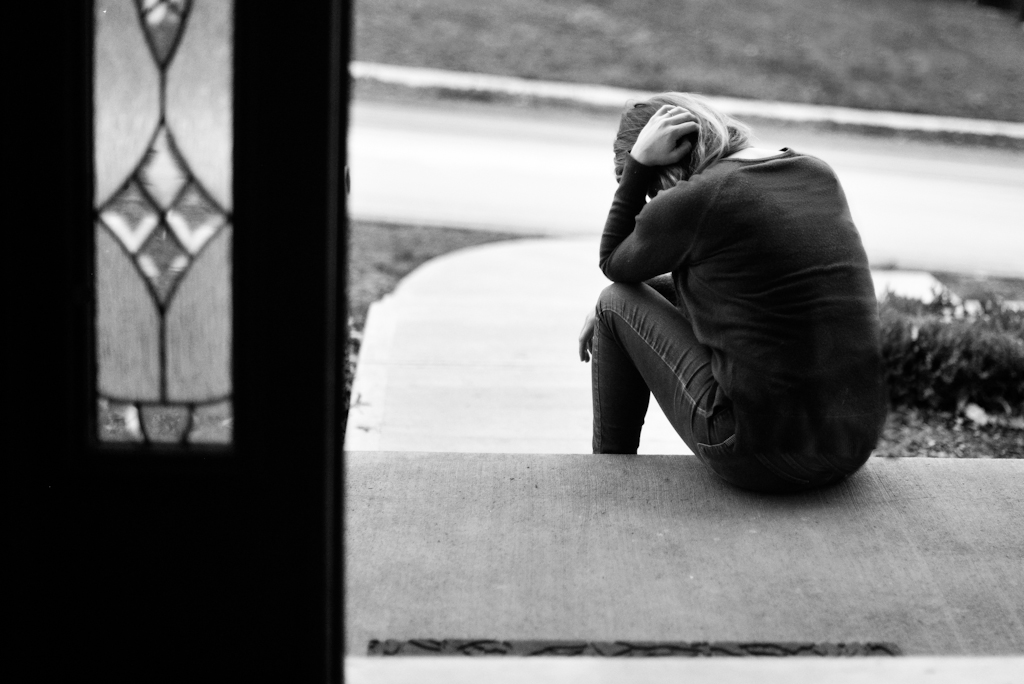

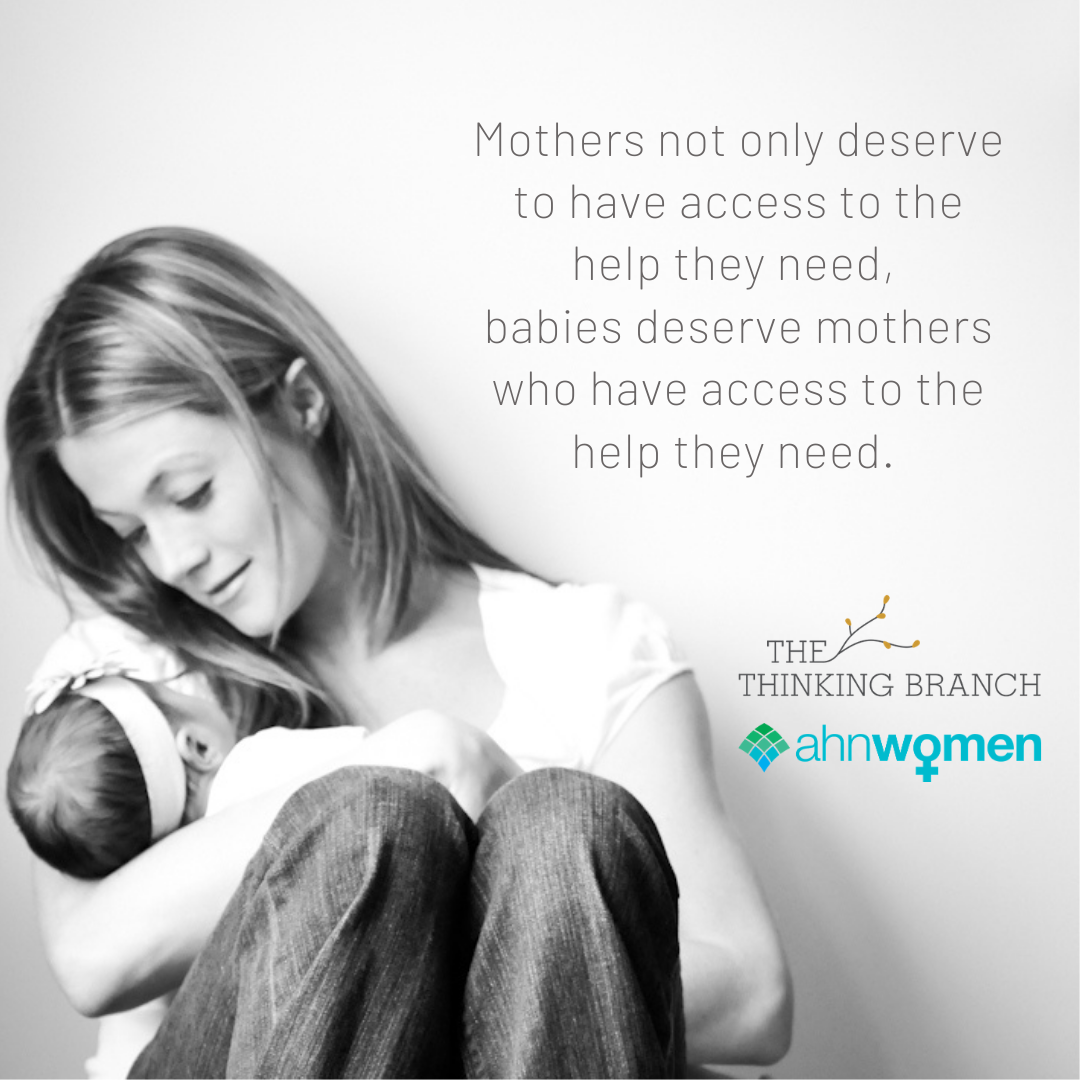
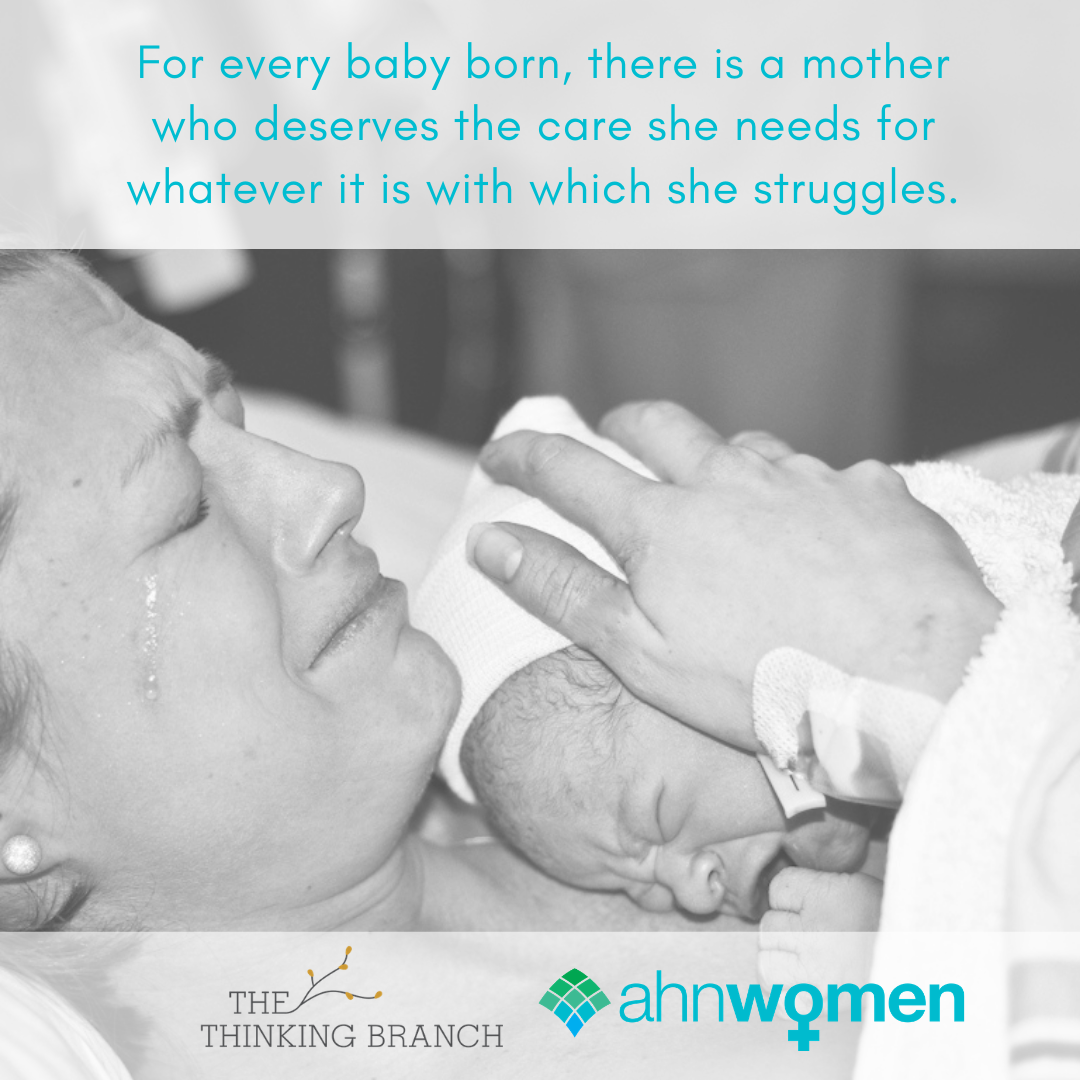


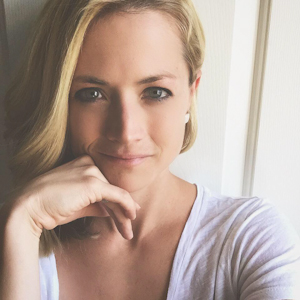








Leave a Comment